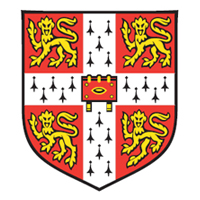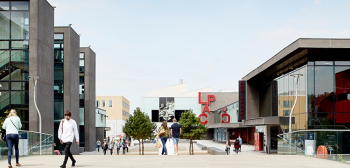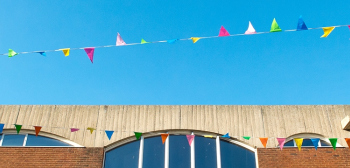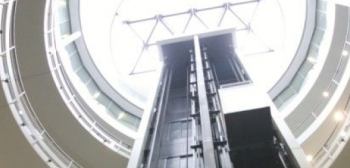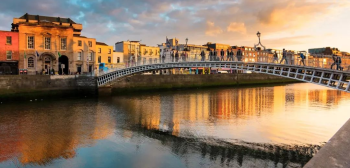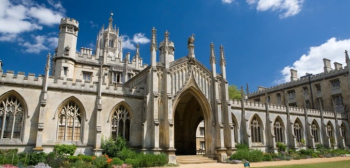剑桥大学
About
To study at Cambridge is the dream of many a 17-year-old with academic aspirations, and the scholastic setting of the medieval city is almost uniquely suited to studying. The university employs a collegiate system, so you apply to your chosen college rather than the university itself. Should you be offered a place to study, this college is where you will live, eat, sleep, socialize and take classes. Cambridge guarantees most students college-owned accommodation for the three years of their degree, which is located either on college grounds or in apartments in and around the city. This system is unlike most British universities, where students must find private accommodation after their first year.
Cambridge offers 30 undergraduate programs covering more than 65 subject areas, from chemical engineering to English, mathematics, medicine, and classics. Unusually for a UK university, undergraduate programs cover the subject area very broadly in the initial years before offering a wide range of options in which to specialize later on.
Faculties arrange lectures, seminars and practicals which students from all of the colleges attend, while colleges arrange supervisions, which provide personal tuition. Each academic year consists of three eight-week terms. The pace and volume of work is notable and there’s much emphasis on independent and self-directed study.
Competition for places at Cambridge is fierce, with an acceptance rate of 21 percent. This means you should not only research your subject area thoroughly before applying, but also think tactically when it comes to choosing your college. While some colleges may have an excellent reputation for certain subjects, they could prove more difficult to get into.
Application is done through completing a UCAS form. In addition, you will be asked to complete a supplementary application questionnaire and take a written admission assessment. Everyone with a realistic chance of being offered a place is then invited to an interview day. Don’t be surprised if you are asked to attend multiple interviews while you’re there, as the process of selecting students can often last more than one round.
When a decision is made about your application, you will either be offered a place, told your application to study was unsuccessful or be informed you’ve been added into a “pool” with other students. This means the college you applied to has no room for you, but that you have been offered to other colleges which might still have spaces. The pooling system is designed to ensure the best applicants still have a chance of gaining a place at Cambridge, even if the college they applied to was over-subscribed.
Tuition fees are currently £9,250 a year for all courses, and living costs – accommodation, food, course costs, study materials, personal expenses and transport – cost around the same annual figure. Financial aid exists in the form of student loans for UK students, and there are Cambridge bursaries that can award up to £3,500 a year.
About
To study at Cambridge is the dream of many a 17-year-old with academic aspirations, and the scholastic setting of the medieval city is almost uniquely suited to studying. The university employs a collegiate system, so you apply to your chosen college rather than the university itself. Should you be offered a place to study, this college is where you will live, eat, sleep, socialize and take classes. Cambridge guarantees most students college-owned accommodation for the three years of their degree, which is located either on college grounds or in apartments in and around the city. This system is unlike most British universities, where students must find private accommodation after their first year.
Cambridge offers 30 undergraduate programs covering more than 65 subject areas, from chemical engineering to English, mathematics, medicine, and classics. Unusually for a UK university, undergraduate programs cover the subject area very broadly in the initial years before offering a wide range of options in which to specialize later on.
Faculties arrange lectures, seminars and practicals which students from all of the colleges attend, while colleges arrange supervisions, which provide personal tuition. Each academic year consists of three eight-week terms. The pace and volume of work is notable and there’s much emphasis on independent and self-directed study.
Competition for places at Cambridge is fierce, with an acceptance rate of 21 percent. This means you should not only research your subject area thoroughly before applying, but also think tactically when it comes to choosing your college. While some colleges may have an excellent reputation for certain subjects, they could prove more difficult to get into.
Application is done through completing a UCAS form. In addition, you will be asked to complete a supplementary application questionnaire and take a written admission assessment. Everyone with a realistic chance of being offered a place is then invited to an interview day. Don’t be surprised if you are asked to attend multiple interviews while you’re there, as the process of selecting students can often last more than one round.
When a decision is made about your application, you will either be offered a place, told your application to study was unsuccessful or be informed you’ve been added into a “pool” with other students. This means the college you applied to has no room for you, but that you have been offered to other colleges which might still have spaces. The pooling system is designed to ensure the best applicants still have a chance of gaining a place at Cambridge, even if the college they applied to was over-subscribed.
Tuition fees are currently £9,250 a year for all courses, and living costs – accommodation, food, course costs, study materials, personal expenses and transport – cost around the same annual figure. Financial aid exists in the form of student loans for UK students, and there are Cambridge bursaries that can award up to £3,500 a year.
University highlights
- 2012#2
- 2014#3
- 2015#=2
- 2016#=3
- 2017#4
- 2018#5
- 2019#6
- 2020#7
- 2021#7
- 2022#=3
- 2023#2
- 2024#2
- 2025#5
- 2026#6
Scholarships
Campus locations
University of Cambridge,
The Old Schools, Trinity Lane , Cambridge , United Kingdom , CB2 1TN
Cambridge University,
Cambridge, United Kingdom , Cambridge , United Kingdom ,
Hughes Hall,
Cambridge, United Kingdom , Cambridge , United Kingdom ,
Lucy Cavendish,
Cambridge, United Kingdom , Cambridge , United Kingdom ,
St Edmunds,
Cambridge, United Kingdom , Cambridge , United Kingdom ,
Wolfson,
Cambridge, United Kingdom , Cambridge , United Kingdom ,

